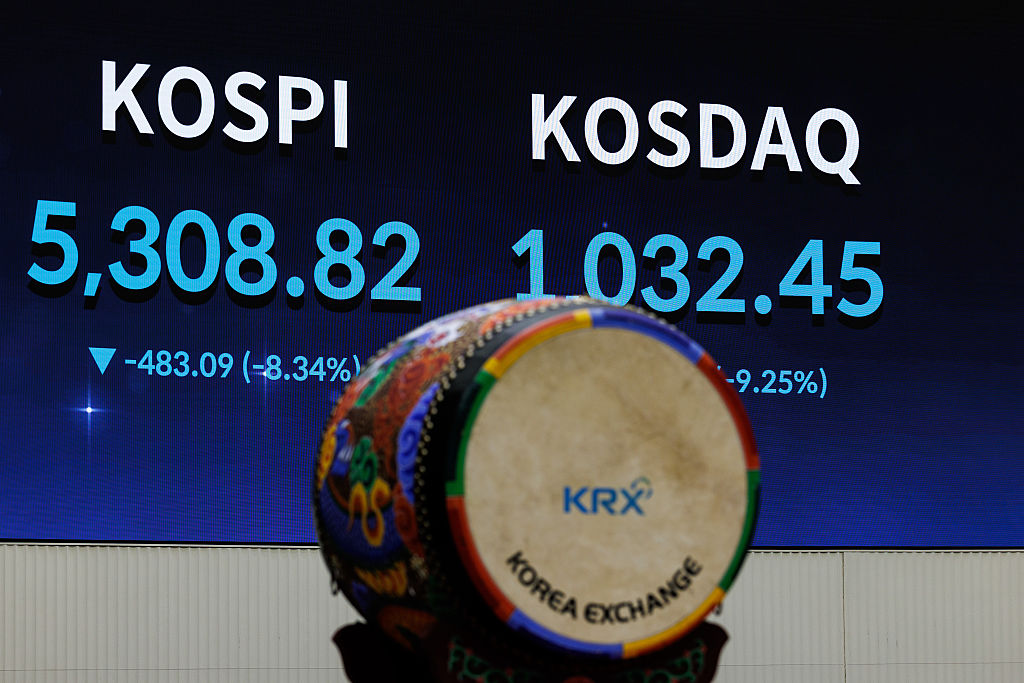The mixed legacy of an independent central bank
Everyone suddenly wants to claim credit for giving the Bank of England its independence. But it was hardly an original idea, and the bank's record is nothing to shout about, says Matthew Lynn.

Get the latest financial news, insights and expert analysis from our award-winning MoneyWeek team, to help you understand what really matters when it comes to your finances.
You are now subscribed
Your newsletter sign-up was successful
Want to add more newsletters?
All of a sudden, everyone seems to want to claim credit for giving the Bank of England its independence in 1997. In his memoirs, Tony Blair rather surprisingly said it was his idea all along. Until then, Gordon Brown had always insisted he thought of it. In response to Blair, the Labour leadership candidate Ed Balls popped up to say he'd had the idea first.
The debate is fairly infantile, as the idea of an independent central bank had been around for decades. The interesting point is that they all assume it was a triumph. In reality, 13 years on, the record is to put it mildly mixed.
That hasn't stopped the Labour tribe squabbling over it. "When I suggested it, he readily agreed," Blair writes in his memoir A Journey, published last week, of the decision to give the Bank sole control over interest rates. "I allowed Gordon to make the statement and indeed gave him every paean of praise and status in becoming the major economic figure of the government. In truth, too, as with the Bank of England independence, the broad framework of the economy, never mind anything else, was set by me."
Try 6 free issues of MoneyWeek today
Get unparalleled financial insight, analysis and expert opinion you can profit from.

Sign up to Money Morning
Don't miss the latest investment and personal finances news, market analysis, plus money-saving tips with our free twice-daily newsletter
Don't miss the latest investment and personal finances news, market analysis, plus money-saving tips with our free twice-daily newsletter
Meanwhile, Gordon Brown has on countless occasions claimed credit for Bank independence as one of the triumphs of his ten years as chancellor. And Ed Balls points to a pamphlet he wrote in 1992 advocating independence for the Bank. "When I presented detailed proposals to Gordon and Tony in 1995, they both agreed in principle it was the right thing to do," he said in an interview with The Sunday Times last weekend.
Yet as I've said, in reality, there was never anything particularly original about the idea. Independent central banks had worked very well for a long time in America, Germany, and elsewhere. You could argue Britain already had one in the late 1980s when the then-chancellor Nigel Lawson was shadowing the deutschemark it just happened to be the Bundesbank rather than Bank of England. Ken Clarke as chancellor under John Major had increased its powers over interest rates. So the decision was part of an evolving policy, rather than a sudden and brilliant innovation.
Blair's recent decision to take credit for the Bank's independence is, in truth, confirmation that the man knows little about economics. Under an independent Bank growth has been fairly modest. Over the years 1997 to 2009, the British economy grew at an average annual rate of 2%, according to calculations by the National Institute of Economic and Social Research. Under the previous period of Conservative rule, from 1979 to 1997, it grew by 2.2%. Between 1960 and 1973 it grew by an average of 2.9%. So it's only compared to the chaotic years of the mid-1970s that the growth figures for the years of Bank independence look good. Judged by the whole of the post-war period, 2% is slightly disappointing.
An enormous debt bubble also built up. According to McKinsey data, over the last decade Britain saw the largest increase in the ratio of debt to GDP of any developed economy. Total public and private debts rose from 350% of GDP at the start of the decade to 449% at its end. The housing market duly went crazy. Between 1979 and 1997, house prices grew by 146%, according to Nationwide figures. Between 1997 and 2009, they grew by 230%. Housing was already very expensive. On the Bank's watch, it turned into a bubble.
Admittedly, the Bank didn't have control of the financial system that was hived off to the Financial Services Authority. Even so, the fact that Britain saw the most catastrophic series of banking collapses in more than a century since it was granted independence is hardly a great advertisement for its role. Nor has the Bank even been particularly successful at meeting its inflation target. It is mandated to maintain inflation at 2%, with no more than a 1% deviation in either direction. But this year, for example, inflation has been above 3% for more than seven months in a row, and shows little sign of coming down. Few people looking at their household bills would conclude the record on rising prices had been great over the last thirteen years.
Naturally, it is unfair to blame the whole of that record on the Bank. The growth rate has more to do with the overall thrust of government policy than with interest rates alone. Against steadily rising taxes and more and more regulation, Britain was always going to struggle. The credit bubble was part of a global trend, even if Britain took part in it with more enthusiasm than any other country. It is hard to disentangle where responsibility lies between the government and the Bank for the economic mismanagement of the last 13 years.
But the Bank could certainly have done better. Interest rates look to have been held too low for too long for the health of the economy. It fretted publicly about house prices, but shied away from doing anything about them. True, it's hard to prick asset bubbles, but that's not really an adequate excuse for not trying. Indeed, given the generally disappointing recent record of the economy under an independent central bank, it is odd that so many politicians want to claim the credit for making it independent.
Get the latest financial news, insights and expert analysis from our award-winning MoneyWeek team, to help you understand what really matters when it comes to your finances.

Matthew Lynn is a columnist for Bloomberg and writes weekly commentary syndicated in papers such as the Daily Telegraph, Die Welt, the Sydney Morning Herald, the South China Morning Post and the Miami Herald. He is also an associate editor of Spectator Business, and a regular contributor to The Spectator. Before that, he worked for the business section of the Sunday Times for ten years.
-
 One million more pensioners set to pay income tax in 2031 – how to lower your bill
One million more pensioners set to pay income tax in 2031 – how to lower your billHundreds of thousands of pensioners will be dragged into paying income tax due to an ongoing freeze to tax bands, forecasts suggest
-
 Stock market circuit breaker: Why did Korean shares pause trading?
Stock market circuit breaker: Why did Korean shares pause trading?The fallout from the conflict in the Middle East hit the Korean stock market on 4 March, with shares forced to temporarily stop trading. What is a stock market circuit breaker, and why did the KOSPI trigger one?